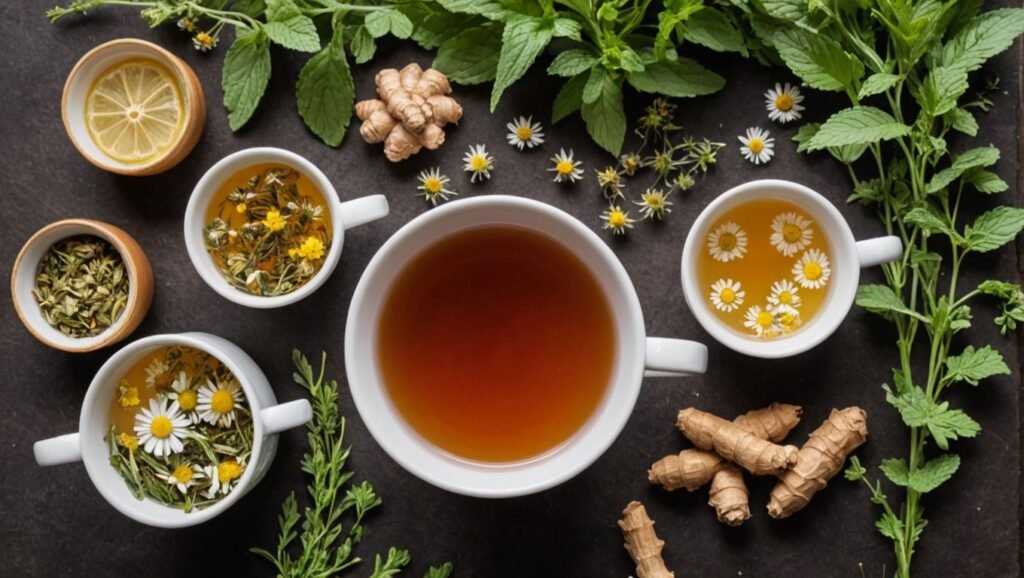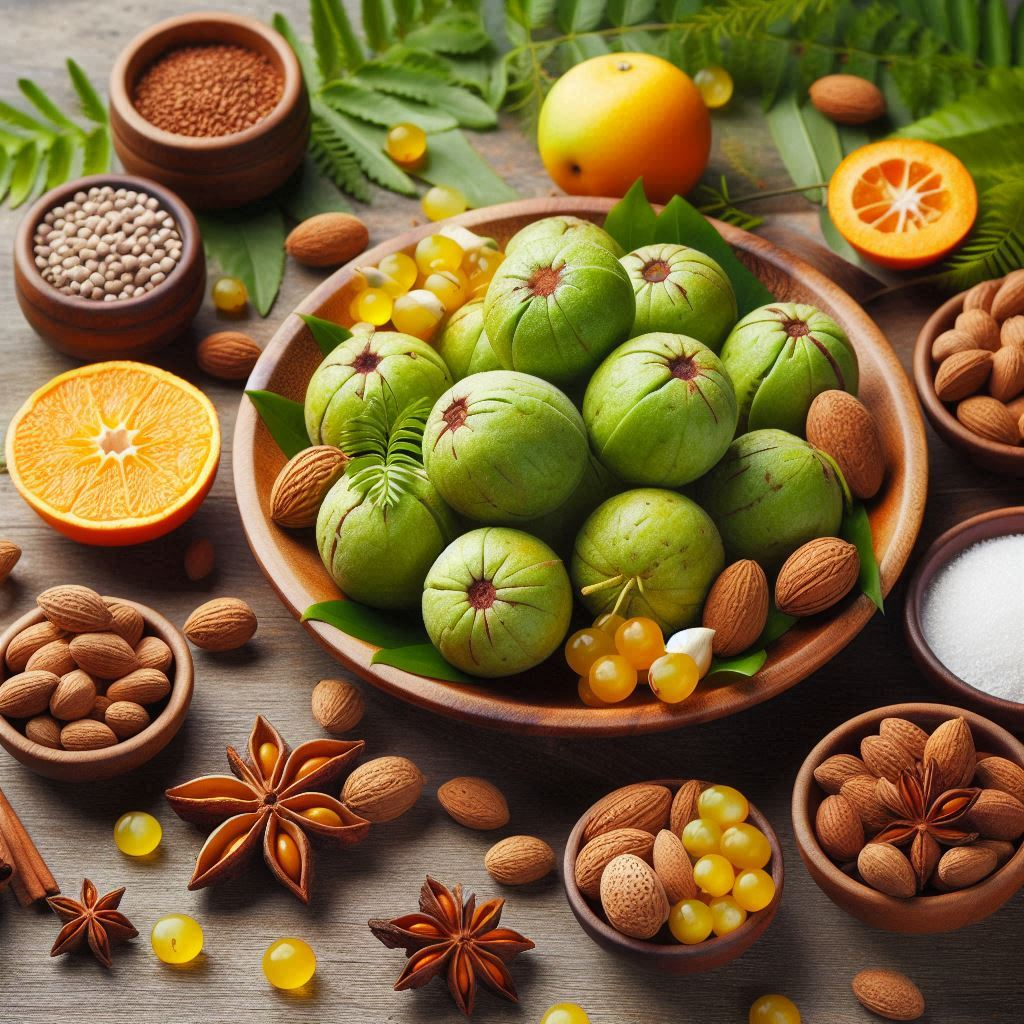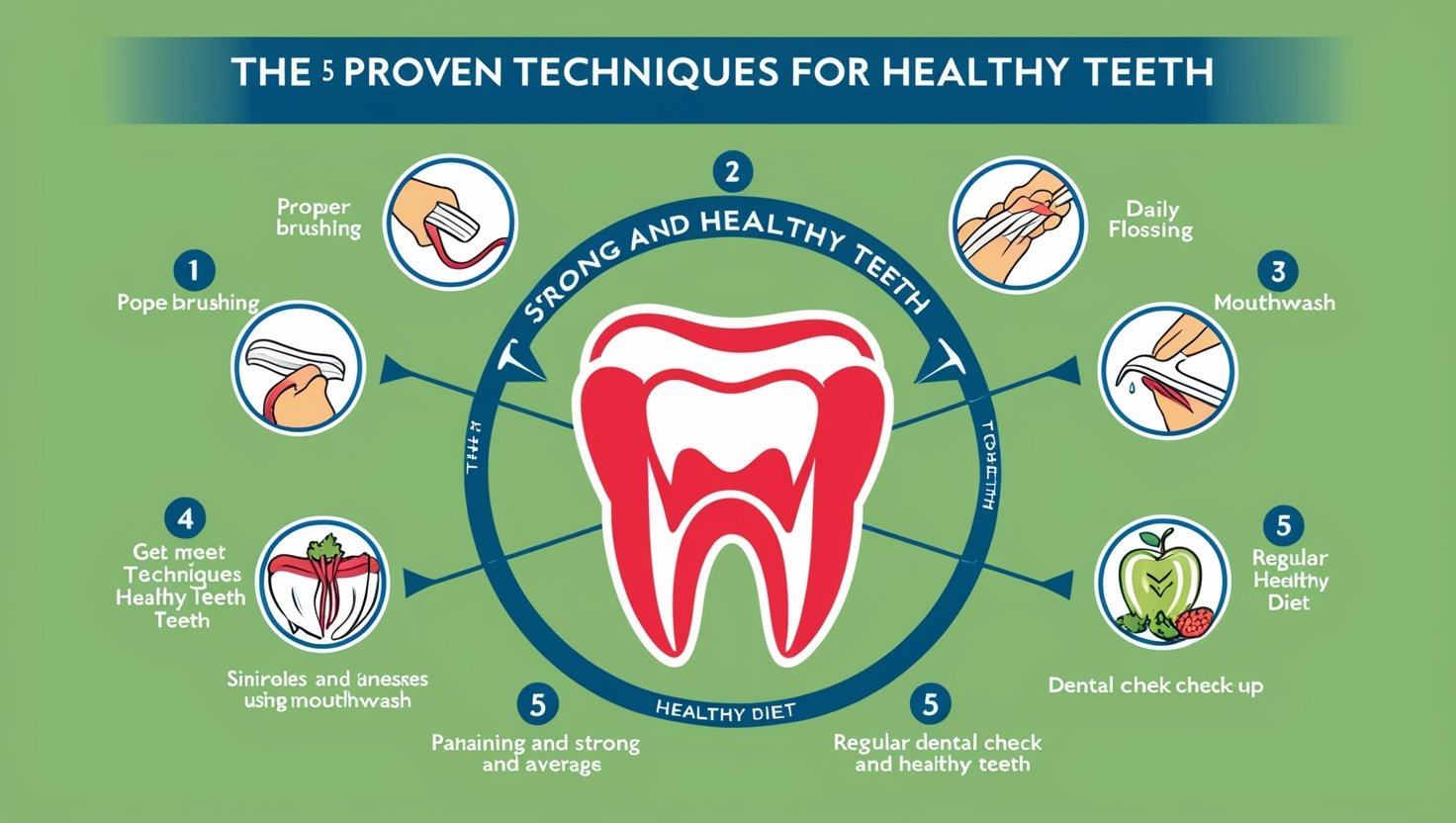
“10 Powerful Ways to Fight HMPV Naturally”
Discover 10 powerful natural remedies to combat HMPV, boost immunity, and improve respiratory health. Learn how to stay healthy with these effective tips.


Introduction
Overview of Human Metapneumovirus (HMPV)
Human Metapneumovirus (HMPV) is a respiratory virus that can cause a range of illnesses, from mild cold-like symptoms to severe respiratory infections. It primarily affects young children, the elderly, and individuals with weakened immune systems. Symptoms of HMPV infection include cough, fever, nasal congestion, and shortness of breath. While there is no specific antiviral treatment for HMPV, natural remedies can help alleviate symptoms and support the immune system.
Importance of Natural Remedies in Combating HMPV
Natural remedies play a crucial role in managing HMPV symptoms and boosting overall health. These remedies can help strengthen the immune system, reduce inflammation, and improve respiratory function. By incorporating natural treatments into your daily routine, you can enhance your body’s ability to fight off infections and recover more quickly.
Brief Introduction to the 10 Powerful Natural Ways to Fight HMPV
In this article, we will explore ten powerful natural remedies that can help combat HMPV. These remedies include boosting immunity with Vitamin C, using herbal teas for respiratory health, incorporating garlic into your diet, utilizing eucalyptus oil for congestion relief, and more. Each remedy is backed by scientific evidence and traditional wisdom, offering safe and effective ways to support your health.
Way 1: Boosting Immunity with Vitamin C
Role of Vitamin C in Immune Function
Vitamin C is a powerful antioxidant that plays a vital role in supporting the immune system. It helps protect cells from damage, enhances the production of white blood cells, and improves the body’s ability to fight infections. Adequate intake of Vitamin C can reduce the severity and duration of respiratory infections, including HMPV.
Foods Rich in Vitamin C
- Citrus Fruits: Oranges, lemons, grapefruits, and limes are excellent sources of Vitamin C.
- Bell Peppers: Red, yellow, and green bell peppers contain high levels of Vitamin C.
- Strawberries: These delicious berries are packed with Vitamin C and other antioxidants.
- Kiwi: Kiwi fruit is another great source of Vitamin C, along with fiber and other nutrients.
- Broccoli: This cruciferous vegetable is rich in Vitamin C and other essential vitamins and minerals.
Tips for Incorporating Vitamin C into Your Diet
- Fresh Fruit Salad: Create a colorful fruit salad with citrus fruits, strawberries, and kiwi for a Vitamin C boost.
- Smoothies: Blend bell peppers, oranges, and strawberries into a refreshing smoothie.
- Vegetable Stir-Fry: Add broccoli and bell peppers to your favorite stir-fry recipe.
- Snacks: Keep sliced citrus fruits and strawberries on hand for a quick and healthy snack.
Way 2: Using Herbal Teas for Respiratory Health
Benefits of Herbal Teas
Herbal teas have been used for centuries to support respiratory health and alleviate symptoms of respiratory infections. They contain natural compounds that can reduce inflammation, soothe the throat, and improve breathing. Some of the best herbal teas for respiratory health include ginger, peppermint, and chamomile.
How Herbal Teas Support Respiratory Health
- Ginger Tea: Ginger has anti-inflammatory and antioxidant properties that can help reduce respiratory inflammation and improve lung function.
- Peppermint Tea: Peppermint contains menthol, which can help open up the airways and relieve congestion.
- Chamomile Tea: Chamomile has soothing properties that can help calm the respiratory system and reduce coughing.
Recipes for Making Herbal Teas at Home
- Ginger Tea: Slice fresh ginger root and steep it in hot water for 10-15 minutes. Add honey and lemon for extra flavor and benefits.
- Peppermint Tea: Steep fresh or dried peppermint leaves in hot water for 5-10 minutes. Add a touch of honey if desired.
- Chamomile Tea: Steep dried chamomile flowers in hot water for 5-10 minutes. Enjoy plain or with a bit of honey.
Way 3: Incorporating Garlic into Your Diet
Antiviral and Immune-Boosting Properties of Garlic
Garlic is known for its potent antiviral and immune-boosting properties. It contains compounds like allicin, which have been shown to enhance the immune system’s ability to fight infections. Regular consumption of garlic can help reduce the severity and duration of respiratory infections, including HMPV.
Ways to Consume Garlic
- Raw: Eating raw garlic can provide the most potent health benefits. Crush or chop garlic and let it sit for a few minutes before consuming to activate its beneficial compounds.
- Cooked: Add garlic to your favorite dishes, such as soups, stews, and stir-fries, to enhance flavor and boost health benefits.
- Supplements: Garlic supplements are available for those who prefer not to consume raw or cooked garlic.
Garlic Recipes for Daily Use
- Garlic and Lemon Tea: Steep crushed garlic and lemon slices in hot water for a soothing and immune-boosting drink.
- Garlic Hummus: Blend chickpeas, tahini, lemon juice, and garlic for a delicious and healthy dip.
- Garlic Roasted Vegetables: Toss your favorite vegetables with olive oil, minced garlic, and herbs, then roast until tender.
Way 4: Utilizing Eucalyptus Oil for Congestion Relief
Benefits of Eucalyptus Oil for Respiratory Issues
Eucalyptus oil is known for its ability to relieve congestion and improve respiratory function. It contains compounds like eucalyptol, which have anti-inflammatory and decongestant properties. Inhaling eucalyptus oil can help open up the airways, reduce mucus, and improve breathing.
Methods of Using Eucalyptus Oil
- Steam Inhalation: Add a few drops of eucalyptus oil to a bowl of hot water. Lean over the bowl, cover your head with a towel, and inhale the steam for 5-10 minutes.
- Diffusers: Use an essential oil diffuser to disperse eucalyptus oil into the air. This can help relieve congestion and improve air quality.
- Topical Application: Dilute eucalyptus oil with a carrier oil (e.g., coconut oil) and apply it to the chest and throat for congestion relief.
Safety Precautions When Using Essential Oils
- Dilution: Always dilute essential oils with a carrier oil before applying them to the skin to prevent irritation.
- Patch Test: Perform a patch test on a small area of skin to check for any allergic reactions before using essential oils.
- Avoid Ingestion: Do not ingest essential oils unless under the guidance of a qualified healthcare professional.
Way 5: Practicing Yoga and Breathing Exercises
Importance of Yoga and Breathing Exercises for Lung Health
Yoga and breathing exercises are essential for maintaining and improving lung health. They help increase lung capacity, enhance oxygen intake, and promote relaxation. Regular practice can strengthen respiratory muscles, improve lung function, and reduce stress, which is beneficial for overall respiratory health.
Specific Yoga Poses and Breathing Techniques for Respiratory Health
- Yoga Poses:
- Bhujangasana (Cobra Pose): This pose helps open up the chest and improve lung capacity.
- Ardha Matsyendrasana (Half Lord of the Fishes Pose): This twisting pose helps detoxify the lungs and improve respiratory function.
- Setu Bandhasana (Bridge Pose): This pose helps expand the chest and improve lung function.
- Breathing Techniques:
- Pranayama (Breath Control): Practicing pranayama techniques like Anulom Vilom (Alternate Nostril Breathing) and Kapalbhati (Skull Shining Breath) can enhance lung capacity and improve respiratory health.
- Deep Breathing: Deep breathing exercises help increase oxygen intake and promote relaxation.
Tips for Incorporating Yoga into Your Daily Routine
- Start Small: Begin with a few minutes of yoga and breathing exercises each day and gradually increase the duration.
- Consistency: Practice yoga and breathing exercises regularly to experience the full benefits.
- Create a Routine: Set aside a specific time each day for your yoga practice to make it a habit.
- Seek Guidance: Consider joining a yoga class or following online tutorials to learn proper techniques.
Way 6: Consuming Probiotic-Rich Foods
Role of Probiotics in Supporting the Immune System
Probiotics are beneficial bacteria that support gut health and enhance the immune system. A healthy gut microbiome is essential for a strong immune response, as it helps protect against infections and reduces inflammation. Consuming probiotic-rich foods can improve gut health and boost overall immunity.
Foods Rich in Probiotics
- Yogurt: Yogurt is a well-known source of probiotics, especially when it contains live and active cultures.
- Kefir: Kefir is a fermented milk drink that is rich in probiotics and beneficial for gut health.
- Sauerkraut: Sauerkraut is fermented cabbage that contains probiotics and is a great addition to meals.
- Kimchi: Kimchi is a traditional Korean dish made from fermented vegetables and is rich in probiotics.
- Miso: Miso is a fermented soybean paste used in Japanese cuisine and is a good source of probiotics.
Tips for Adding Probiotics to Your Diet
- Incorporate Probiotic Foods: Add yogurt, kefir, sauerkraut, kimchi, and miso to your meals regularly.
- Try Fermented Foods: Experiment with other fermented foods like tempeh, pickles, and kombucha.
- Read Labels: Choose probiotic-rich products that contain live and active cultures.
- Balance Your Diet: Combine probiotic-rich foods with a balanced diet that includes fiber, fruits, and vegetables to support gut health.
Way 7: Using Turmeric for Its Anti-Inflammatory Properties
Benefits of Turmeric and Curcumin for Inflammation
Turmeric is a powerful anti-inflammatory spice that contains curcumin, a compound known for its health benefits. Curcumin has been shown to reduce inflammation, boost the immune system, and improve overall health. Incorporating turmeric into your diet can help manage inflammation and support respiratory health.
Ways to Consume Turmeric
- Golden Milk: Golden milk is a popular way to consume turmeric. It is made by mixing turmeric with milk (dairy or plant-based) and adding spices like cinnamon and ginger.
- Turmeric Tea: Turmeric tea is made by steeping turmeric powder or fresh turmeric root in hot water. Add honey and lemon for extra flavor and benefits.
- Turmeric Smoothies: Add turmeric powder to your favorite smoothie recipes for an anti-inflammatory boost.
- Cooking with Turmeric: Use turmeric in cooking by adding it to soups, stews, curries, and rice dishes.
Turmeric Recipes for Daily Use
- Golden Milk Recipe:
- Ingredients: 1 cup milk (dairy or plant-based), 1/2 teaspoon turmeric powder, 1/4 teaspoon cinnamon, 1/4 teaspoon ginger powder, honey to taste.
- Instructions: Heat the milk in a saucepan. Add turmeric, cinnamon, and ginger. Stir well and simmer for a few minutes. Remove from heat and add honey. Enjoy warm.
- Turmeric Tea Recipe:
- Ingredients: 1 cup hot water, 1/2 teaspoon turmeric powder or fresh turmeric root, honey and lemon to taste.
- Instructions: Steep turmeric in hot water for 5-10 minutes. Strain and add honey and lemon. Enjoy warm.
- Turmeric Smoothie Recipe:
- Ingredients: 1 banana, 1/2 cup pineapple, 1/2 teaspoon turmeric powder, 1 cup coconut water or almond milk, a handful of spinach.
- Instructions: Blend all ingredients until smooth. Enjoy as a refreshing and nutritious drink.
Way 8: Staying Hydrated with Water and Herbal Infusions
Importance of Hydration for Overall Health
Staying hydrated is crucial for maintaining overall health and well-being. Proper hydration helps regulate body temperature, support digestion, transport nutrients, and remove waste products. It also plays a vital role in maintaining healthy skin, joints, and organs. Adequate hydration is especially important when combating respiratory infections like HMPV, as it helps keep the respiratory tract moist and supports the immune system.
Benefits of Herbal Infusions
Herbal infusions are a great way to stay hydrated while also providing additional health benefits. Some popular herbal infusions include:
- Mint: Mint has soothing properties that can help relieve respiratory discomfort and improve digestion.
- Lemon: Lemon is rich in Vitamin C and antioxidants, which can boost the immune system and support overall health.
- Ginger: Ginger has anti-inflammatory and antioxidant properties that can help reduce respiratory inflammation and improve lung function.
Tips for Staying Hydrated Throughout the Day
- Drink Water Regularly: Aim to drink at least 8 glasses of water a day. Carry a water bottle with you to remind yourself to stay hydrated.
- Infuse Your Water: Add slices of lemon, cucumber, or mint to your water for a refreshing and flavorful twist.
- Set Reminders: Use a phone app or set alarms to remind yourself to drink water throughout the day.
- Eat Hydrating Foods: Include water-rich foods like fruits and vegetables in your diet to help maintain hydration.
Way 9: Incorporating Zinc-Rich Foods into Your Diet
Role of Zinc in Immune Function
Zinc is an essential mineral that plays a crucial role in supporting the immune system. It helps in the production and function of immune cells, reduces inflammation, and supports wound healing. Adequate zinc intake is important for maintaining a strong immune response and protecting against infections like HMPV.
Foods Rich in Zinc
- Nuts: Almonds, cashews, and walnuts are good sources of zinc.
- Seeds: Pumpkin seeds, sunflower seeds, and chia seeds are rich in zinc.
- Legumes: Chickpeas, lentils, and beans are excellent plant-based sources of zinc.
- Whole Grains: Quinoa, brown rice, and oats contain zinc and other essential nutrients.
- Seafood: Oysters, crab, and shrimp are high in zinc.
Tips for Ensuring Adequate Zinc Intake
- Include Zinc-Rich Foods in Meals: Incorporate nuts, seeds, legumes, and whole grains into your daily meals.
- Snack on Nuts and Seeds: Keep a mix of nuts and seeds on hand for a healthy and zinc-rich snack.
- Try Zinc Supplements: If you have difficulty getting enough zinc from your diet, consider taking a zinc supplement after consulting with a healthcare professional.
Way 10: Practicing Good Hygiene and Preventative Measures
Importance of Hygiene in Preventing the Spread of HMPV
Practicing good hygiene is essential for preventing the spread of HMPV and other respiratory infections. Proper hygiene habits can help reduce the risk of infection and protect yourself and others from illness.
Tips for Maintaining Good Hygiene
- Handwashing: Wash your hands regularly with soap and water for at least 20 seconds, especially after coughing, sneezing, or touching surfaces.
- Sanitizing Surfaces: Clean and disinfect frequently-touched surfaces, such as doorknobs, light switches, and countertops, to reduce the spread of germs.
- Avoid Touching Your Face: Avoid touching your eyes, nose, and mouth with unwashed hands to prevent the entry of viruses.
Additional Preventative Measures
- Wearing Masks: Wear a mask in crowded places or when around individuals who are sick to reduce the risk of respiratory infections.
- Avoiding Crowded Places: Limit exposure to crowded places, especially during peak infection seasons, to reduce the risk of contracting HMPV.
- Staying Home When Sick: If you are feeling unwell, stay home to prevent spreading the infection to others.
Conclusion
Recap of the 10 Powerful Natural Ways to Fight HMPV
In this article, we explored ten powerful natural remedies to combat HMPV and support overall health:
- Boosting Immunity with Vitamin C
- Using Herbal Teas for Respiratory Health
- Incorporating Garlic into Your Diet
- Utilizing Eucalyptus Oil for Congestion Relief
- Practicing Yoga and Breathing Exercises
- Consuming Probiotic-Rich Foods
- Using Turmeric for Its Anti-Inflammatory Properties
- Staying Hydrated with Water and Herbal Infusions
- Incorporating Zinc-Rich Foods into Your Diet
- Practicing Good Hygiene and Preventative Measures
Encouragement to Incorporate These Natural Remedies into Daily Life
Incorporating these natural remedies into your daily routine can help strengthen your immune system, improve respiratory health, and reduce the risk of infections like HMPV. By making informed choices and adopting healthy habits, you can enhance your overall well-being and protect yourself and your loved ones from illness.
Final Thoughts on the Importance of Natural Healing and Prevention
Natural healing and prevention play a vital role in maintaining health and well-being. By embracing natural remedies and preventative measures, you can support your body’s ability to fight infections and promote long-term health. Remember, a holistic approach to health that includes proper nutrition, hydration, exercise, and hygiene is key to staying healthy and resilient.




